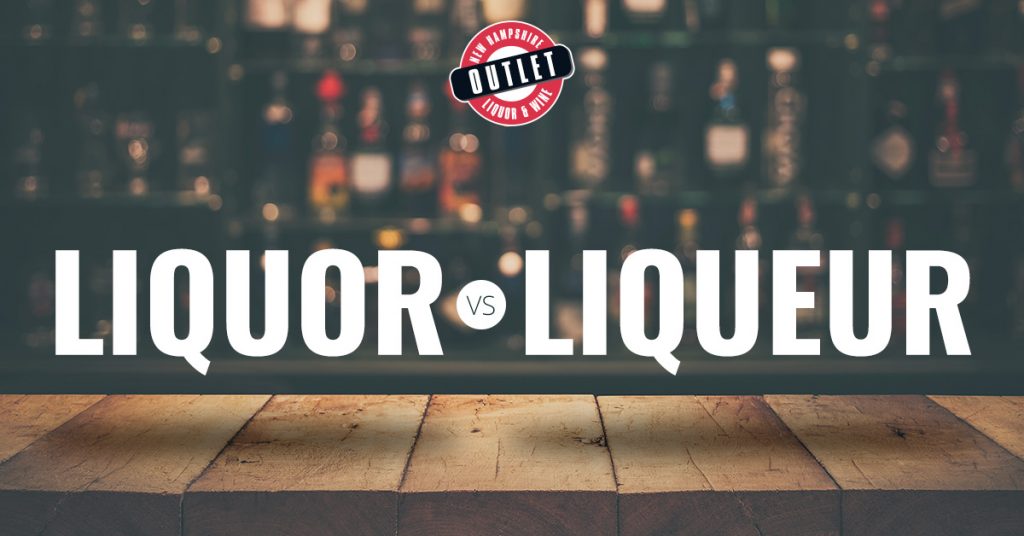If you find these two different spellings of similar words confusing, you are not alone. However, they are completely different as a category. While they are both distilled spirits, they are not the same thing, and their spellings, therefore, are not interchangeable. Read on to learn the difference between liquor vs. liqueur!
Liquor
Liquor is technically a distilled spirt made from grains, or plants, that are fermented into a potent drink. A defining quality of liquor is that it is not sweet. Generally speaking, there are six types or categories of distilled spirits: vodka, whiskey, rum, tequila, gin and brandy. After fermentation, the distillation process begins. Essentially this process separates water from alcohol and increases the alcohol to a minimum of 20% by volume though almost always, the ABV (Alcohol by volume) is 35% or greater.
Liquor is used either as a base for cocktails, or enjoyed straight, either on the rocks, or neat. Examples include martini, gin and tonic, Manhattan, and old-fashioned to name a few.
Liqueur
Technically speaking, liqueurs are liquor, as they are both distilled spirits. Liqueurs are generally sweetened with various flavors, extracts and oils, creating a distinctive flavor profile that are typically sweet. They are generally less in alcohol than spirits, but not always. They can range from 15% ABV to as much as 55%, though the rule of thumb is less than 35% ABV, where spirits are generally 35% or higher. Examples of liqueurs are: Cointreau, Chambord, Amaretto, Crème de Cassis, Kalua and Schnapps.
New Hampshire Liquor and Wine Outlet’s Tasting Room is the perfect place to get an education on all sorts of topics related to your favorite wines and spirits, just like our liquor vs liqueur lesson! Be sure to connect and stay updated with The Tasting Room for education, recipes, pairings, and more today!
